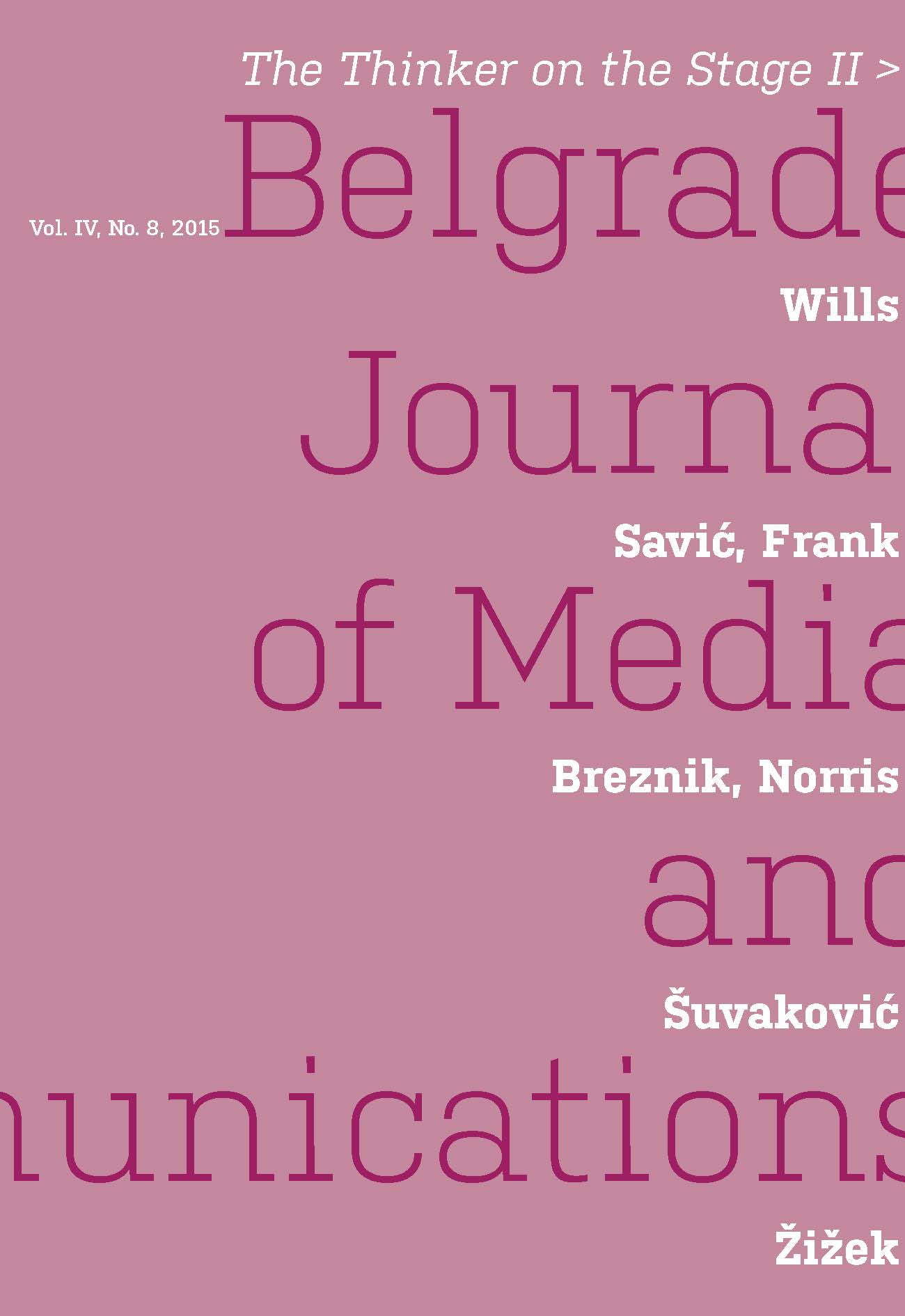Social Histrionism: a Historical-
Materialist Explanation
of Theatricality
Social Histrionism: a Historical-
Materialist Explanation
of Theatricality
Author(s): Maja BreznikSubject(s): Theatre, Dance, Performing Arts, Epistemology, Aesthetics, Social Philosophy, Renaissance Philosophy
Published by: Fakultet za medije i komunikacije - Univerzitet Singidunum
Keywords: Theatricality; Social Histrionism; Renaissance festivals; Renaissance Theatre; Historical Evolution of Festivals.
Summary/Abstract: The article examines theatricality which ‘escaped’ from the theatrical institution: what Octave Mannoni referred to as histrionism, with the focus on collective histrionism. Thorough research into festivals in Early Modern Europe, the ideal place for such an undertaking, has led to several conclusions. 1. The festival is a “formative whole” of the theatre. 2. Festivals were much more than entertaining idleness with no purpose in itself – they figured as an ordal (i.e. God’s verdict) or the enactment of otherwise suppressed social issues which habitually could not be addressed and were to be normalized through “social histrionism”. 3. Contrary to common beliefs, due to works by Bakhtin and Bataille, the study shows that the carnival transgression was an enjoyment for the popular classes as much as it was for the affluent classes, but on a strictly divided basis. 4. The historical examination indicates the progressive evolution of festivals from bloodshed to the culturalization of festivals, although in terms of content the former may display as much class violence as the latter.
Journal: Belgrade Journal of Media and Communications
- Issue Year: 4/2015
- Issue No: 08
- Page Range: 91-108
- Page Count: 18
- Language: English

